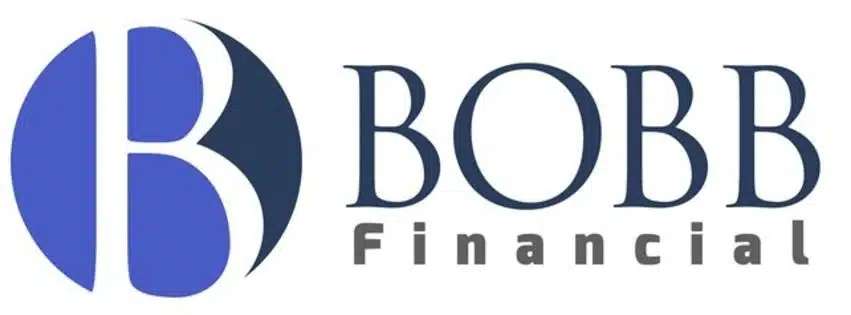The question of paying off your house or not is one that seems to be a constant debate among people approaching retirement. In fact, it’s a good question for anyone with a mortgage.
The way I see it, there are two perspectives that need to be evaluated to come up with an answer to this question.
- Psychological element
- Financial element
The psychology of paying off your house
In regard to the psychological side of paying off your mortgage, there are a lot of people that absolutely hate debt. These people may have a hard time sleeping at night knowing that they have a $200,000 mortgage, and debt is something that can really weigh them down emotionally. There are also the Dave Ramsey advocates that read a verse in the Old Testament that says the borrower is slave to the lender. However, being a Christian myself, I don’t interpret that statement as meaning any debt is against Biblical principles.
If you interpret the verse that literally, let’s hope that our kids never get into an argument at school and I have to learn the hard way how about “an eye for an eye!”
Debt and retirement
This is something that each individual approaching retirement needs to evaluate. If you’re married, you need to have a conversation with your spouse and discuss how each of you feel about having debt, and more specifically having debt in retirement. If you didn’t have any debt going into retirement, would that the decision to retire easier? If so, then maybe focusing some of your savings towards paying off your mortgage would be a good idea.
A retirement decision is never one that should be taken lightly, and if it would make you more comfortable to have your mortgage paid off, then you should probably focus on paying down at least some of that mortgage.
The finances behind paying off your house
The second aspect to evaluate when considering paying off your mortgage is the financial angle.
The answer to this question really comes down to numbers. What is your mortgage rate? What is the term, or how many years until you pay your mortgage is paid off? Another question is if there are any tax benefits in continuing to have a mortgage.
In 2018, a new tax law was enacted that may change the benefits of having a mortgage. In the past, the majority of families with kids ended up itemizing their taxes. It was much easier to itemize your taxes prior to 2018. Now with the new tax law being adopted, many families that had itemized in the past are going to find themselves taking the standard deduction. The personal exemptions have been eliminated and state and local taxes have been limited to $10,000, which makes it harder for families to itemize. It looks like the only way that middle income families are going to itemize is if they have large annual charitable deductions.
Knowing all of that, most Federal employees this year (and through the year 2025 when the tax law is set to revert) will likely be taking the standard deduction of $24,000 each year. That means that those middle-income families that are taking the standard deduction are not going to receive any tax benefit for mortgage interest.
Here’s the bottom line: with no tax benefits on your mortgage interest, it comes down to a numbers game. Consider how much interest you are paying on your mortgage versus how much money you are making on your savings.
To use a quick example, if you have a mortgage rate of 4%, and you have 20 years left to pay on that mortgage, can you invest money and get better than a 4% return? If so, then the correct financial decision is to keep your mortgage and invest your excess funds. If you don’t think you can make a better rate of return than the interest rate you are paying on your mortgage, then it would be beneficial to pay off your mortgage.
Mortgage term
Another factor that comes into play is how much longer you have to pay on your mortgage. If you’re looking at investing assets for a five-year period of time, there is a much higher chance of losing money in the stock market than if you were to invest money over a 10-year period of time, or 15 to 30 years. In other words, if you are going to invest excess cash flow versus paying off your mortgage, you have a much better chance of making more money than the interest that you’re paying on your mortgage if it is over a longer period of time.
Here’s a quick example: if you have 30 years to pay on your mortgage, and you are paying 4%, you need to evaluate the odds that you can invest money over 30 years and make better than that 4%.
Principal vs. interest
One more factor to evaluate is how much you are paying in principal versus interest. If you have a 30 year mortgage and you’ve been paying on that mortgage for 25 years, then most of your payment is probably going towards principal right now. Mortgages are front loaded. This means that in the early years of your mortgage, the majority of your payment is going towards interest. As you continue to make payments on a mortgage, more of your payment goes toward the principal, and eventually in the last couple of years most of your payment goes toward your principal.
If you only have a couple of years left to pay on your mortgage, there is a good chance that almost all of that money you are paying back is principal, so you really aren’t gaining much by paying it off early.
Most people that have a 15 to 30-year mortgage would probably be better off by investing money right away, versus taking extra cash flow and paying down their mortgage. This is looking at it strictly from a numbers standpoint. The psychological aspect of having the mortgage is completely separate.
Financially speaking it is hard to make a case for paying the mortgage off. But I see one big benefit of no mortgage: it eliminates a fixed monthly expense. Eliminating fixed expenses in retirement can allow you to be more flexible when you take retirement withdrawals.
The #1 benefit my clients have experienced when paying off their mortgage is peace of mind.
Now that we walked through the decision, here are some general tips to follow if you choose to pay off your house.
What not to do when paying down your mortgage
Do not take money out of your TSP (previous article that briefly discusses this) when you retire to pay off your mortgage. This is a question that retirees and soon to be retirees ask me at least once a week. I understand not wanting to have debt or not wanting to have a monthly payment. However, taking money out of your TSP to pay off your mortgage is rarely, if ever, a good idea.
Consider the tax consequences. Every dollar that you take out of TSP is going to be taxed as ordinary income tax at the federal level. Depending on what state you live in, there may be state income taxes as well. If you were to take out $50,000 to pay off your mortgage, then that just increased your taxable income for the year by $50,000.You would have to take out significantly more to get $50,000 because of the taxes you would pay.
Taking out a lump sum from TSP can easily push you into a higher tax bracket. You could easily go from the 12% tax bracket up to the 22% tax bracket (or higher), by taking a lump sum out of TSP. If you have a mortgage at retirement, and you are wanting to pay it off sooner, then it would be a better option to take a little bit extra out of TSP each year to pay down your mortgage. That way you aren’t taking out a large lump sum at one time and paying a large amount of taxes on it.
Summary of house paydown options
Here are three options to consider if you are approaching retirement and still have a mortgage.
- Option one: Pay off your mortgage sooner while continuing to save for retirement.
- Option two: Keep your mortgage and continue investing money because you believe that you will be better off financially in the future by doing so.
- Option three: This is an in-between option for those that think investing is more beneficial but somewhat unsure of the best option. With option three, you can take an additional $500 a month if that’s the amount that you would use monthly to pay down your mortgage quicker, and invest that $500 a month in an account. This way, you are going to have a much larger emergency savings should you need access to it. Also, at some point if you have grown that money to the balance of what you owe on your mortgage, you can take it and pay the mortgage off.
Conclusion
When it comes to paying off a mortgage early, I have found that there is no black and white answer. As with most things when it comes to finances, it really comes down to each person’s personal situation. This is just one more aspect that we evaluate in our financial planning process at Bobb Financial. If you find yourself thinking about questions like this and would like some help with your retirement planning you are welcome to schedule a call with Brad.
Brad Bobb, CFP® is the owner of Bobb Financial Inc, and an expert in retirement planning for federal employees.

